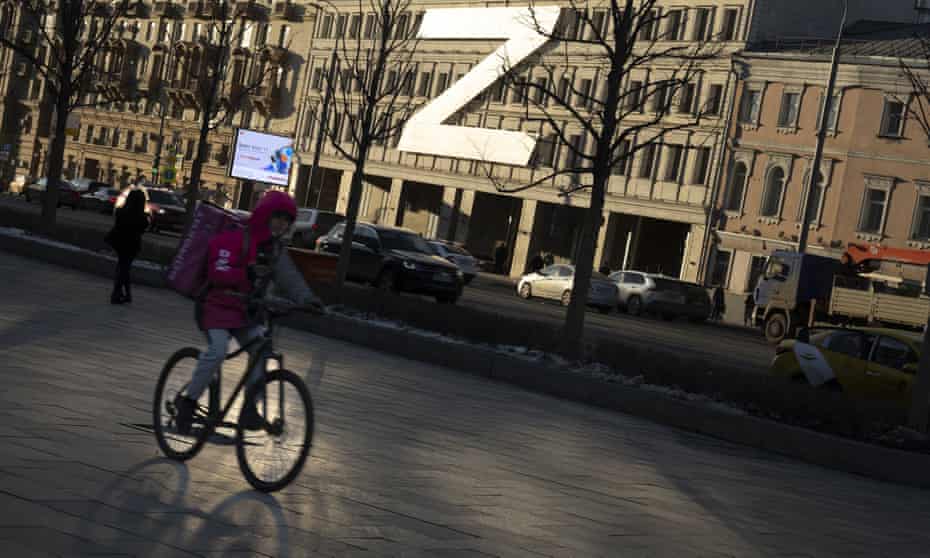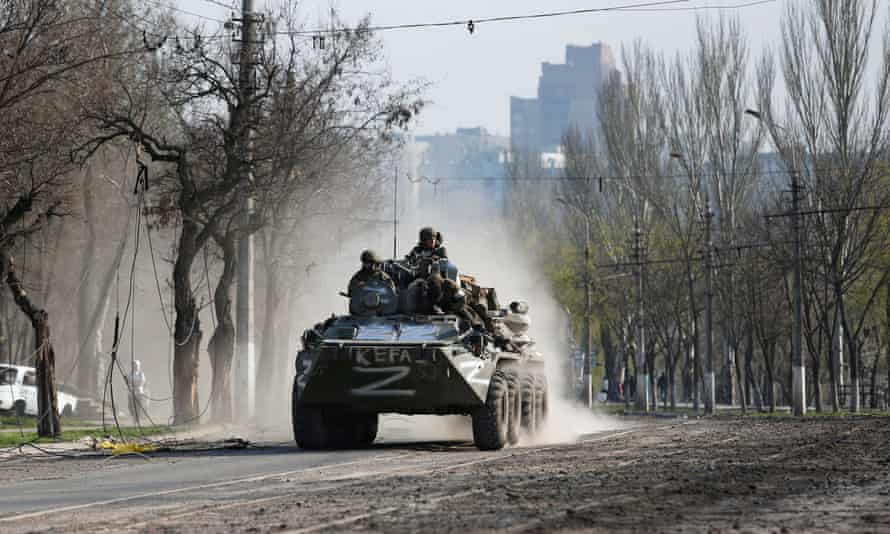Russians who fled at outbreak of Ukraine war reluctantly go home
Financial challenges and family links are forcing difficult decisions on many of those who left the country

When the war began, Olga Gladysheva, a former journalist who now works in video production, joined tens of thousands of other Russians fleeing the country.
“I left for Istanbul in a state of panic shortly after the war started. I thought I wouldn’t get another chance to leave, that the borders might close. I didn’t want to stay alone in the country as I saw all my friends leaving. I thought Russia was turning into North Korea,” she said.
But in Turkey her bank cards were blocked and she could not transfer money home to support her mother in Moscow. She survived by asking favours from friends who had access to funds.
Now, reluctantly, she has returned home. “I came back last week. Bluntly speaking, money is the main reason I had to return. I have a flat in Moscow that I was still paying for. I had the option to work from a distance but it wasn’t the easiest option and I would earn more here in Moscow. Life wasn’t sustainable for me in Turkey.”
As Russia’s war nears its third month with no end in sight, the hurried decisions that many Russians made to flee have hit the hard realities of emigration abroad, particularly at a time of closed borders and banking sanctions. While many Russians have left for ever, others have been drawn back to care for ailing parents, manage businesses, keep their families together or simply to make ends meet.
“It was a real family drama,” said Roman, a tech startup co-founder who returned from Armenia last week. “I thought we needed to get as far from Russia as possible. My wife didn’t want to go anywhere and I had to search for some compromise. It was a matter of choice: leave Russia without my wife or come back with my wife. So I decided to come here with my wife and to see what happens.”
Experts say the wave of Russian migration provoked by the war is unusual, sparked by rumours of a forced mobilisation in early March and led by highly educated workers often travelling to smaller countries. And at least on paper, many have the option to return for either short trips or permanently.
Artem Taganov, the founder of the tech startup HintEd, left for Armenia in early March as part of the exodus of Russia’s tech sector. His partner and investors had urged him to leave the country immediately because of fears of a forced mobilisation, he said, and he had made plans to open a new company in Armenia.
But after five weeks in the capital, Yerevan, he had returned to Moscow temporarily because of family and business concerns.
“The idea [in Armenia] was to open a company but it’s paused because I’m waiting for some money. My wife and my dog are still in Moscow, my wife can’t leave her work right now,” he said. She had been working at an institute partnered with a British arts university that may terminate its agreements in Russia this year. “I’m trying to convince her to move. And still I have some business here, so we still need to support my company here.”
It was an uneasy homecoming. His parents, who live in another city and support the war, have told him he was wrong to leave Russia. He says he finds it difficult to call them and does not expect to see them until the conflict ends.
“When I was returning I was afraid that there would be a lot of cars with Z or V [symbols supporting the war] but I’ve only seen one,” he said. “Still, the atmosphere is really heavy here. All our mass media says that a lot of people support the war but that’s not true. In my close circle nobody supports it. Everybody here is afraid even to talk about this ‘special operation’. Nobody is smiling and everyone is sad.”

A senior executive at one of Russia’s largest IT companies said he had noticed the return of younger employees with lower salaries who had been priced out of cities such as Yerevan, Istanbul and Tbilisi.
“People left in a panic and then after some time they realised: ‘OK, how are we going to continue living?’” the executive said. “They still hate the situation, they still disagree and they still psychologically feel uncomfortable and they don’t want to come back. But there’s no way not to come back.”
There are no firm estimates of how many Russians left the country after the start of the war, which the Kremlin has termed a “special operation”. While tech workers may have strong prospects abroad, others may find their skills and education don’t translate across borders.
Dmitry, an art consultant, said he was in “shock” when the war started and fled the country due to rumours of a forced mobilisation.
“I flew to Uzbekistan, one of the easiest places I could visit without a visa. I returned to Moscow in late March when it became clear that the forced mobilisation was just a rumour. I realised that Europe was not an option for me. I am not sure Europe is waiting for Russians to come, even those that are against the war. What would I even do there? I barely speak any English.”
Ira Lobanovskaya, who runs an organisation helping Russians to settle abroad, said: “Many left during the wave out of panic, just to have a breather. I see that some people are returning now. But I know that some of those who returned are making plans to leave again. They just needed to go back to Russia to get all their stuff, organise their papers and make concrete plans to properly leave.”
A number of factors could make it difficult for Russians travelling abroad, said Katrin Sommerfeld, a researcher at the Mannheim-based Centre for European Economic Research who focuses on refugee immigration. She has published a paper calling on German policymakers to bring forward a strategy on how to deal with migrants from Russia.
“Prices are rocketing in the countries where these individuals are going to,” she said. “You’re only allowed to take $10,000 abroad from Russia. You can’t access your bank account. The rouble has devalued. So it’s harder to get your money and it is worth less. Things are very expensive. This makes it difficult and could perhaps feed into return migration, because if your money is burnt and it doesn’t work abroad then what are you going to do?”
Some of those returning say they are often surprised by the indifference to the war.
“The main impression for me is that people are kind of accepting it,” said the tech executive. “The war is bad and Putin is evil but life continues. It’s more or less alright here, the exchange rate is alright even if it is imaginary, some stuff disappeared from shops but it’s not as bad as we thought, the prices grew but it’s not that bad. It has really depressed me seriously to the bottom of my heart.”
In a recent poll, over half of Russians said they were not closely following the war.
“I thought I would witness horrible scenes on the streets, that people would be filled with pro-war anger, but life actually just goes on,” said Olga Gladysheva. “All the bars and restaurants are still packed every evening. It feels like people are ignoring the war – but that is scary too.”
Russia’s invasion of Ukraine has abruptly transformed the world. Millions of people have already fled. A new Iron Curtain is grinding into place. An economic war deepens, as the military conflict escalates, civilian casualties rise and evidence of horrific war crimes mounts.
It’s our job at the Guardian to decipher a rapidly changing landscape, particularly when it involves a mounting refugee crisis and the risk of unthinkable escalation. Our correspondents are on the ground in Ukraine and throughout the globe delivering round-the-clock reporting and analysis during this perilous situation.
We know there is no substitute for being there – and we’ll stay on the ground, as we did during the 1917 Russian Revolution, the Ukrainian famine of the 1930s, the collapse of the Soviet Union in 1991 and the first Russo-Ukrainian conflict in 2014. We have an illustrious, 200-year history of reporting throughout Europe in times of upheaval, peace and everything in between. We won’t let up now.
Tens of millions have placed their trust in the Guardian’s fearless journalism since we started publishing 200 years ago, turning to us in moments of crisis, uncertainty, solidarity and hope. We’d like to invite you to join more than 1.5 million supporters from 180 countries who now power us financially – keeping us open to all, and fiercely independent.
Unlike many others, the Guardian has no shareholders and no billionaire owner. Just the determination and passion to deliver high-impact global reporting, always free from commercial or political influence. Reporting like this is vital to establish the facts: who is lying and who is telling the truth.
And we provide all this for free, for everyone to read. We do this because we believe in information equality. Greater numbers of people can keep track of the global events shaping our world, understand their impact on people and communities, and become inspired to take meaningful action. Millions can benefit from open access to quality, truthful news, regardless of their ability to pay for it.
If there were ever a time to join us, it is now. Every contribution, however big or small, powers our journalism and sustains our future. Support the Guardian from as little as $1 – it only takes a minute. If you can, please consider supporting us with a regular amount each month. Thank you.
No comments:
Post a Comment